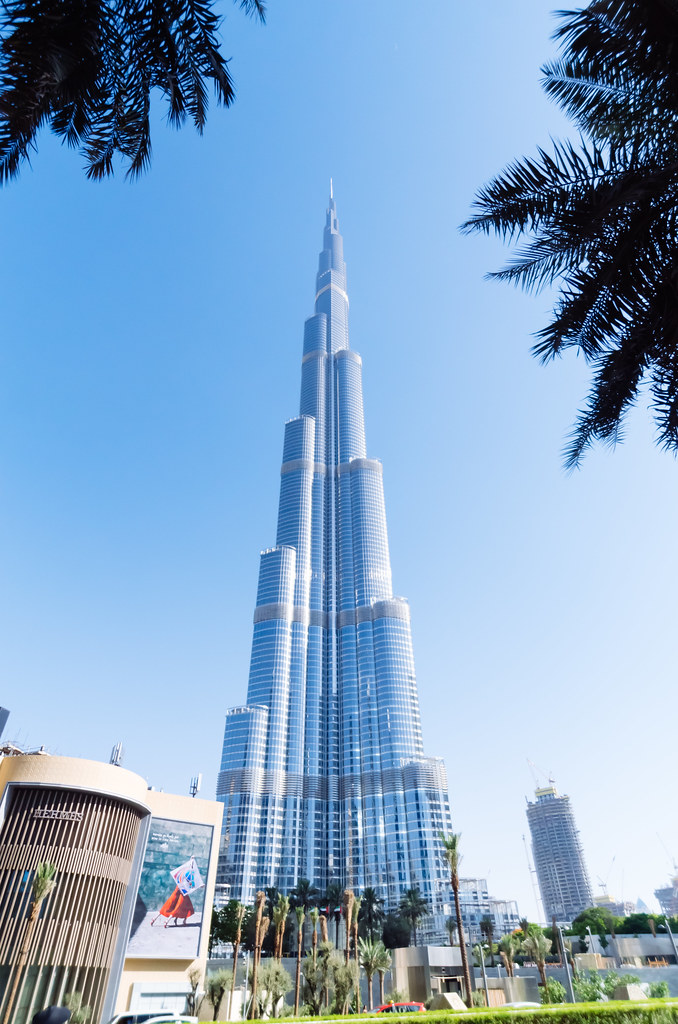

Come across high-tech, the most of the luxury and old-world charm of Dubai. The UAE is located on the east coast of the Arabic peninsula, southwest of the Arabian Gulf. Only in Dubai can you take a good look upon and travel up in the world’s tallest building (The Burj khalifa), shop in both traditional trade souks as well as in the exclusive designer mall, and many more. Dubai is a renowned worldwide booming center of international trade and innovation; Dubai becomes one of the most popular destinations globally within a short period of time. Dubai is the most populated city in the UAE, with over more than 2,780,000 residents from over 200 counties, plus countless tourists and traders from all over the world on any given day! An upscale Arabic culture underpins local life within the city, but all are welcome and encouraged to explore and luxuriate in Dubai to the fullest!
Dubai is a glamorous and one of the wealthiest cities in the UAE. It is well-known to the tourist for its charming hotels, Modern Architecture buildings, shopping malls, traditional markets, gardens, etc. Dubai is a popular travel destination in Asia and one of the most popular international travel destinations in the world. Dubai is a place which can offer the most luxury tours as well as the budget tour. Therefore it is said that Dubai is to travel for everyone.
Most countries in the UAE adhere to the religion and traditions of Islam and Arab and Bedouin culture. While Dubai is no different, its metropolitan nature sees a vibrant and diverse range of cultures come into play. However, some traditional Dubai customs remain, including the five times daily prayer sessions (Namaz) that Muslims observe when calls come from the towers of mosques throughout the country. Although the Dubai culture is more liberal than most Arab/Islamic and UAE nations, Islamic laws are still strictly adhered to and respected by all visitors. As the official religion of Dubai, travelers are strongly advised against criticizing any aspects of it. They should also avoid conversations regarding world affairs, politics, or negativity toward the current government. Keep the conversation light and simple, and you will avoid any issues.
Dubai’s primary architecture, dating from the late 19th century, was inspired by Indian, Iranian, and Islamic designs. The inhabitants’ hot and humid climate, religious and social customs and available selection of construction materials were crucial considerations in building styles. The main features were durability, simplicity, functionality, and suitability for the climate. Early structures were made from stone, leaves, palm, and palm trunks, with mud interchanging for mortar. The majority of Dubai’s first residents lived in baristas, huts made with palm fronds.
A city with modern architecture, one of the world’s most impressive buildings, and luxury – for 40 years of a poor fishing spot, Dubai has grown into a world metropolis and tourist center, all these thanks to the oil. Today, Dubai is a modern city and business hub in the Middle East. Although its swiftly growing economy is based on oil, a center for real estate and financial services, it is also a tourist center. More recently, Dubai has captivated the world with its construction projects and sports events. Dubai has numerous attractions like underwater hotels; ski trails closed in the middle of the desert, the largest shopping center globally, flavored Underground Railroad, rotating buildings, and much else!
Dubai celebrates several festivals and events throughout the year. Dubai’s cultural beliefs are firmly rooted within the Islamic civilization. Islam is quite just a faith; it’s how life governs even the littlest of everyday events.
1. Ramadan is the sacred 9th month of the Islamic calendar in which Muslims celebrate the revelation of the Holy Koran. They observe fast from dawn till dusk. While fasting, Muslims abstain from food, drink, smoking and sexual affairs.
2. Eid Al Fitr (‘Feast of Breaking the Fast’) is celebrated at the end of Ramadan. It is celebrated for 3 days and starts after the morning prayers. Gifts are also exchanged between friends and relatives.
3. Eid Al Adha (‘Feast of Sacrifice’) is celebrated on the 10th day of Dhu al-Hijjah, and it honours the keenness of Ibrahim to sacrifice his son for the command of God. The celebrations last for 4 days and a sacrifice are made of a cow, camel, ram.
While rice, meat, and fish are the Dubai national foods, Al Machboos and Khuzi are the traditional cuisines of the country. The Emirati cuisine includes meat, fish, and rice as staple food. Among these, lamb and mutton are mostly flavored meats instead of goat and beef. But the city can offer you any food from all around the world.
Plants are those common in dry subtropical and tropical lands, such as papyrus. Egypt has no forests but does have date palm and citrus groves; eucalyptus and cypress have been introduced. Sheep, goats, and donkeys are found throughout the country, and camels are found in all the deserts. Egypt has some 300 types of birds, with about half of them being breeding species within the country. Wild animals are few, except for the hyena, jackal, lynx, mongoose, and wild boar, the last-named inhabiting the Nile Delta. The ibex may be found in the Sinai and gazelles in the deserts. The Nile is adequately stocked with fish, but crocodiles have been reduced to a few along Lake Nasser’s shores. Reptiles include the horned viper and the hooded snake.